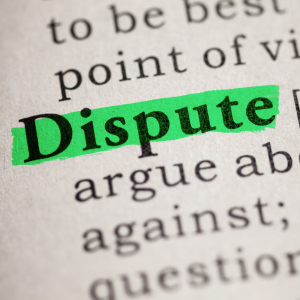
Understanding Homeowners Association (HOA) Rules and Regulations
In Seattle, understanding the rules and regulations of homeowners associations (HOAs) is crucial for homeowners concerned about their property rights. HOAs have specific covenants, conditions, and restrictions (CC&Rs) that homeowners must adhere to, which can include guidelines on property maintenance, architectural standards, and community behavior.
In Washington State, these associations are governed by both state statutes and their governing documents. Homeowners should be aware that while HOAs play a significant role in maintaining community standards and property values, they also possess enforcement powers that can impact individual properties.
This includes the ability to levy fines or place liens on properties if CC&Rs are violated. The potential for an HOA to initiate foreclosure proceedings in Seattle exists if a homeowner repeatedly fails to pay dues or assessments.
Thus, it is vital for homeowners to thoroughly understand the legal framework governing HOAs in Washington to prevent any adverse actions that might jeopardize their homeownership. If you’re navigating HOA-related challenges while preparing to sell your property, Sell My House in Seattle can help you understand your options and guide you through a smooth selling process.
Importance of Reviewing Covenants, Conditions, and Restrictions (CC&Rs)
In Seattle, understanding the covenants, conditions, and restrictions (CC&Rs) of a homeowners association (HOA) is crucial for homeowners to ensure they are compliant with community rules and protect their property rights. CC&Rs outline the obligations and limitations imposed on properties within the association, including architectural guidelines, maintenance responsibilities, and use restrictions.
By thoroughly reviewing these documents, homeowners can avoid potential conflicts with the HOA that might lead to fines or legal action. Ignorance of these covenants could result in severe consequences, such as liens on the property or even foreclosure proceedings if disputes escalate.
It’s essential for Seattle homeowners to be proactive in understanding these regulations to safeguard their investment and maintain harmony within their community. Given Washington’s specific laws governing HOAs, familiarizing oneself with CC&Rs not only helps in complying with local statutes but also provides clarity regarding what an HOA can legally enforce concerning property management and homeowner obligations.
The Role of State Laws in Governing Seattle HOAs
In Seattle, homeowner associations (HOAs) are primarily governed by state laws, particularly those outlined in the Washington Uniform Common Interest Ownership Act (WUCIOA). This legislation plays a crucial role in defining the powers and limitations of HOAs, ensuring they operate within a legal framework that protects homeowners’ rights.
Under WUCIOA, an HOA must adhere to specific rules regarding the enforcement of covenants, collection of dues, and management of common areas. While HOAs have significant authority to uphold community standards and maintain property values, this power is balanced by legal restrictions designed to prevent overreach.
For instance, although an HOA can place a lien on a property for unpaid assessments or dues, the process for foreclosure is strictly regulated to protect homeowners from unjust loss of their homes. These state laws provide a structured approach that helps manage disputes between residents and HOAs in Seattle, offering recourse through mediation or court action if necessary.
If you’re a homeowner in Seattle dealing with the challenges of HOA regulations or the potential risk of liens and foreclosure, it may be time to consider selling before issues escalate. Navigating state laws like WUCIOA can be complex, but working with cash home buyers in Seattle and neighboring cities can simplify the process. These buyers are experienced in acquiring properties impacted by HOA disputes or legal complications and can provide a fast, hassle-free transaction without the delays of traditional real estate sales. This can be a strategic option for homeowners looking to exit quickly and protect their equity.
Navigating HOA Disputes: A Guide for Seattle Residents

Navigating disputes with a homeowners association (HOA) can be challenging for Seattle residents, especially when concerns arise about the potential for an HOA to take your house. In Washington State, HOAs are governed by specific laws that outline their powers and limitations.
Understanding these regulations is crucial for homeowners facing conflicts with their association. Typically, HOAs have the authority to enforce community rules and collect dues; however, they must adhere to state laws when doing so.
If a homeowner fails to pay assessments, an HOA may place a lien on the property, which could lead to foreclosure if not resolved. It’s essential for Seattle residents to familiarize themselves with the Revised Code of Washington (RCW) that pertains to HOAs, as well as any governing documents specific to their community.
Communication is key in resolving disputes; homeowners should actively participate in HOA meetings and seek mediation or legal advice if necessary. By understanding their rights and responsibilities under Washington law, Seattle homeowners can better navigate conflicts with their HOA while protecting their property interests.
Legal Rights of Property Owners Facing HOA Actions
In Seattle, property owners facing actions from a homeowners association (HOA) must understand their legal rights under Washington state law. Homeowners in communities governed by HOAs should be aware that these associations have certain powers granted by community covenants and bylaws.
However, HOAs cannot arbitrarily seize a homeowner’s property. The Washington State Legislature has established specific regulations that protect homeowners from unjust HOA actions, including foreclosure proceedings.
If an HOA seeks to enforce assessments or fines through foreclosure, it must comply with the statutory framework outlined in the Revised Code of Washington. Homeowners have the right to challenge improper fines and penalties, and they can seek mediation or legal recourse if they believe their rights are being violated.
It is crucial for homeowners to review their community’s governing documents thoroughly and consult with legal counsel if faced with potential foreclosure or other serious actions initiated by an HOA. If you need assistance understanding your rights or exploring your options, don’t hesitate to contact us for guidance tailored to your situation.
Protecting Your Property From HOA Overreach in Seattle
Homeowners in Seattle should be aware of the measures they can take to protect their property from potential overreach by homeowners associations (HOAs). Washington state law provides several safeguards for homeowners, ensuring that HOAs operate within legal boundaries.
It’s crucial for property owners to familiarize themselves with the HOA’s governing documents, such as covenants, conditions, and restrictions (CC&Rs), as well as bylaws. These documents outline the extent of the HOA’s authority and any limitations on its power to enforce rules or levy fines.
Additionally, homeowners have rights under Washington’s Homeowners’ Association Act, which requires HOAs to act in good faith and maintain transparency in their operations. Disputes often arise when HOAs attempt to exercise more control than granted by their governing documents or state laws.
In these instances, homeowners may seek legal counsel to challenge overreaching actions through mediation or court proceedings. Understanding your rights and responsibilities can help prevent unwarranted claims against your property and ensure a fair balance between communal harmony and individual ownership rights within Seattle communities.
Common Reasons HOAs Initiate Foreclosure Proceedings on Homes
In Seattle, homeowners associations (HOAs) can initiate foreclosure proceedings against a property for several common reasons. One primary reason is the failure to pay HOA dues or assessments, which are crucial for maintaining community amenities and services.
When homeowners neglect these financial obligations, HOAs may enforce their lien rights to recover the unpaid amounts through foreclosure. Additionally, significant violations of community rules or covenants, such as unauthorized property modifications or persistent nuisances, can also lead to legal action by the HOA if fines and penalties remain unresolved.
In some cases, the accumulation of fines and fees due to ongoing non-compliance with HOA regulations can become substantial enough to justify foreclosure proceedings under Washington state law. These measures are often seen as a last resort by HOAs seeking to preserve property values and neighborhood harmony in Seattle communities.
When Can an HOA Legally Foreclose on a Property?

In Seattle, as in the rest of Washington State, a homeowners association (HOA) has specific legal grounds to foreclose on a property when a homeowner fails to meet certain obligations. Under Washington State law, an HOA can initiate foreclosure proceedings if a homeowner is delinquent in paying their dues or assessments.
These assessments are crucial for maintaining communal areas and services within the residential community. If these fees remain unpaid for an extended period, typically outlined in the HOA’s governing documents, the association may obtain a lien against the property.
Once a lien is established, the HOA can move forward with non-judicial foreclosure procedures. It’s important for homeowners to review their HOA’s covenants, conditions, and restrictions (CC&Rs), as these documents will detail the specific conditions and timelines that may lead to foreclosure.
Additionally, Washington law requires HOAs to provide proper notice to homeowners before pursuing foreclosure, giving them an opportunity to resolve any outstanding debts. Understanding these legal processes is essential for homeowners in Seattle to protect their property rights while complying with HOA regulations.
Can an HOA Take Your Home in Washington State?
In Washington State, homeowners associations (HOAs) have specific legal powers that can significantly impact property ownership, but the question remains: can an HOA take your home in Seattle? Under Washington law, HOAs are granted the authority to enforce rules and collect assessments from homeowners within their community. If a homeowner fails to pay these assessments or violates the community’s covenants, conditions, and restrictions (CC&Rs), the HOA may place a lien on the property.
This lien is a legal claim that can lead to foreclosure if not resolved. However, for an HOA to initiate foreclosure proceedings in Seattle or elsewhere in Washington State, they must follow strict legal procedures.
These include providing adequate notice to the homeowner and adhering to state-specific timelines and processes. It is crucial for homeowners in Seattle to understand their rights and responsibilities under both state law and their specific HOA agreements to avoid situations where their home could be at risk due to unpaid dues or violations of HOA rules.
If you’re seeking a faster alternative to avoid HOA complications, working with cash home buyers in Washington and nearby cities can help you sell your property quickly and avoid further legal entanglements.
Can an HOA Take Your Home If It’s Paid Off?
In Seattle and, really, all of Washington, homeowners associations hold a lot of clout when the situation calls for it. So, even if you own your house free and clear, an unpaid bill for dues or special assessments can still push the HOA toward putting a lien on your place.
Once that lien is in place, the association could move forward with a foreclosure if you don’t clear the debt, and, in the end, it might end up owning your home. State law does force associations to follow a rigorous step-by-step process before they pull the trigger on a sale, a process that includes giving you plenty of notice and multiple chances to pay what you owe.
For Seattle homeowners, knowing both your rights and your duties under these rules is vital if you want to stop a stack of unpaid fees from snowballing into an unwanted loss of your house. While actually losing a fully paid-off home to the board is rare, the fallout from ignoring assessments can still be extremely serious.
To sidestep these high-stakes headaches, homeowners should read their association’s bylaws, attend meetings, and talk early and often with board members about any financial trouble. Keeping a clear line of communication and a solid grasp of how Seattle HOAs work will help protect your most important asset, your mortgage-free home.
What Power Does an HOA Have in Washington State?
In Washington State, homeowner associations wield broad authority over the houses in their neighborhoods, including those in Seattle. State law allows these groups to enforce the covenants, conditions, and restrictions, or CC&Rs, that shape how each home looks and is kept.
Associations can levy fines when members ignore rules, whether by letting grass overgrow, failing to remove a broken fence, or adding a skylight without approval. If payments stay overdue, the board may place a lien against the title, a legal claim that can complicate future sales.
Though lengthy and costly, an HOA can, in theory, move to foreclose on a house when dues and special assessments remain unpaid for an extended period. Washington statutes aim to shield owners by mandating notice, giving time to cure the debt, and requiring the association to follow strict judicial or non-judicial procedures.
Seattle residents and homeowners across the state should grasp both the power and the procedural checks built into Washington’s HOA system so they can protect their property rights.
Is It Possible to Get Your House Removed From an HOA?

Many Seattle homeowners, along with folks across Washington, occasionally ask whether they can yank their house out of the local homeowners association, or HOA. The short answer is that pulling a single lot free is rarely simple; it hinges on the association’s own rules, the Covenants, Conditions, and Restrictions, or CC&Rs, and on what state law allows.
Associations are set up to tend shared parks, pools, and aesthetics, so going solo usually means climbing a tall legal ladder or winning most, often all, of your neighbors’ consent. Because of this, any exit plan will probably call for a formal change to the CC&Rs, and voting thresholds can reach 100 percent in some communities.
Washington state also lays out a different path for winding up the entire association, but they don’t leave room for one homeowner to slip away by themselves. Because of the tangled process, anyone thinking about the move should team up with a real estate lawyer who knows local rules and can map the potential costs and risks.
Homeowners seeking to remove their homes from an HOA should consult with a real estate attorney familiar with local Washington State laws and regulations concerning homeowner associations to thoroughly explore potential legal options and implications.
Do you have to sell your house? Whether you want to move fast, skip major repairs, or just avoid the usual headaches, Sell My House can step in. We put fair cash offers on the table, take care of every detail, and keep the process smooth from start to finish. Curious or ready to get moving? Call us at (253) 289-3773 for a free, no-obligation quote. Let’s get started today!
| THE ASSOCIATION’S GOVERNING DOCUMENTS | HOMEOWNERS’ ASSOCIATIONS | FORECLOSING | FORECLOSURE AUCTION | LIENHOLDER | FIRST LIEN |
| COA LIENS | RESERVE STUDY | BOARD OF DIRECTORS | MEMBER OF THE BOARD | SEATTLE, WASHINGTON | BUDGETS |
| ANNUAL BUDGET | BALLOT | CONDOS | CONDOMINIUM ASSOCIATIONS | OVERSIGHT | INSURANCE |
| INSURANCE AGENCY | INSURANCE COMPANY | LAWYER | ENERGY | SOLAR ENERGY | PROXY |
| PROXY VOTING | POLICIES | POLICY | LESSEES | LEASES | LEASED |
| LEASE AGREEMENT | FLAG | MAINTENANCE COSTS | DROUGHT | DROUGHT CONDITION | MORTGAGES |
| LIABILITIES | LIABILITY | CIVILLY LIABLE | ATTORNEYS’ FEES | WILDFIRE | WASHINGTON, DC |
| THE UNITED STATES | UNITED STATES | QUORUM | WATER | TELEPHONE | REAL PROPERTY |
| FLAG OF THE UNITED STATES | EXPENDITURES | EXPENSES | FAIR HOUSING | FAIR HOUSING ACT | HOUSING DISCRIMINATION |
| DISCLOSURE | DEED | CONTRACTS | CONSUMER PROTECTION | CONSUMER RIGHTS | CONSUMER PROTECTION LAWS |
| TAX | TAXATION | LOAN | INSURANCE POLICIES | INSURANCE POLICY | INSPECTION |
| FINANCIAL STATEMENTS | EMERGENCY | DISCRIMINATORY | DISCRIMINATION | PERSONS WITH DISABILITIES | DISABILITY |
| DEBT COLLECTION | CORPORATIONS | ABSENTEE BALLOT | SECRETARY OF STATE | PRIVACY | MINUTES |
| JURISDICTION | THE INTERNET | INTERNET | HOTLINE | HEALTH | ACTUAL DAMAGES |
| MONETARY DAMAGES | COOPERATIVES | CONSUMER | CASH | ASSETS | VOTING |
| VEGETATION | TOOLS | SECRETARY | ROOF | GRASS | PLANTS |
| PERCENTAGE | NONPROFIT CORPORATION | NATIONAL FLAG | NATIONAL FLAG | LAWNS | INCORPORATION |
| HUMAN RIGHTS COMMISSION | COOPERATIVE HOUSING | CO-OP | FLAGPOLE | ELECTION | AUDIT |
| AUDITED | ARTICLES OF INCORPORATION | HUD | TERMS OF USE | SWIMMING POOLS | VOTING RIGHTS |
| SOLAR PANELS | REPEAL | PROPERTY INSURANCE | MONEY | MARKETING | SIMPLE MAJORITY |
| LIABILITY INSURANCE | LEGAL ENTITY | LEGAL ENTITIES | LANDLORD | INCOME | CREDITORS |
| CONFIDENTIAL INFORMATION | AESTHETICS | ACCOUNTING | LAWS IN WASHINGTON | HOA IN WASHINGTON | OF COVENANTS CONDITIONS |
| BOARD OF DIRECTORS | HOAS GOVERNING DOCUMENTS | DECLARATION OF COVENANTS | COVENANTS CONDITIONS AND | COVENANTS, CONDITIONS, AND | COSTS INCURRED BY THE |
| HOMEOWNERS ASSOCIATION (HOA) | DECLARATION OF COVENANTS CONDITIONS | THE DECLARATION OF COVENANTS | AN HOA IN WASHINGTON | THE HOA’S GOVERNING DOCUMENTS | OF COVENANTS, CONDITIONS, AND |
| BOARD OF DIRECTORS AND | IN THE GOVERNING DOCUMENTS | COVENANTS, CONDITIONS, AND RESTRICTIONS |
